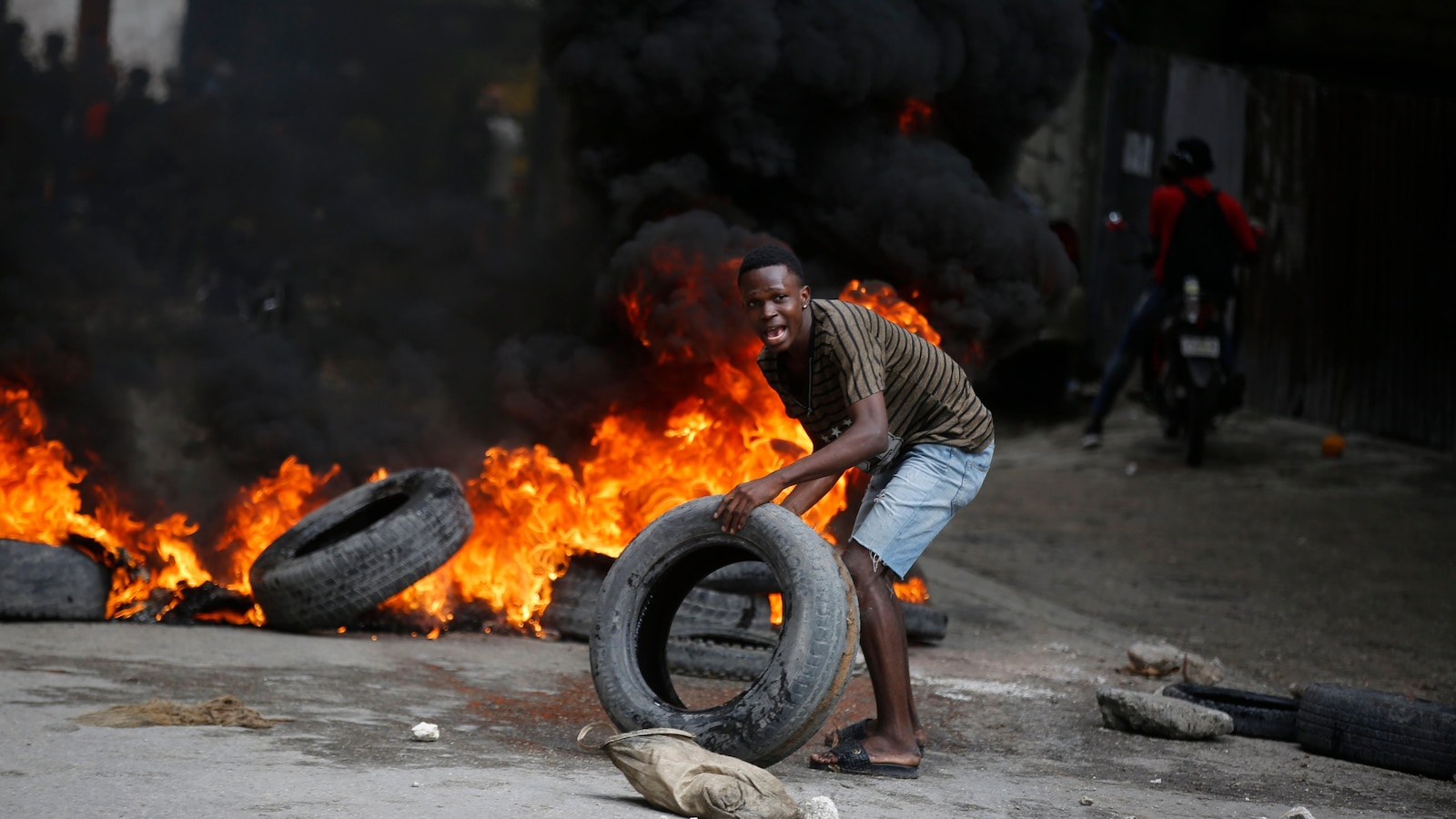Haiti’s Prime Minister Addresses Violent Protests Demanding His Removal
Haiti, a country plagued by political instability and economic challenges, is once again facing a wave of violent protests demanding the removal of its Prime Minister. The ongoing demonstrations have escalated in recent weeks, with thousands of Haitians taking to the streets, expressing their frustration and anger at the current government’s handling of the country’s deepening crisis.
Prime Minister Ariel Henry, who assumed office just days before the assassination of President Jovenel Moïse in July 2021, has been at the center of these protests. Demonstrators accuse him of failing to address the urgent needs of the Haitian people, including soaring inflation, rampant corruption, and a lack of basic services such as healthcare and education.
The protests have turned increasingly violent, with clashes between demonstrators and security forces resulting in injuries and deaths. Public buildings have been set on fire, roads blocked, and businesses looted. The unrest has further destabilized an already fragile nation, hampering efforts to rebuild after the devastating 2010 earthquake and subsequent natural disasters.
In response to the mounting pressure, Prime Minister Henry recently addressed the nation, acknowledging the legitimate grievances of the protesters and pledging to take concrete actions to address their concerns. He emphasized his commitment to implementing long-overdue reforms and called for unity among all Haitians to overcome the challenges facing the nation.
One of the key issues raised by the protesters is the need for economic stability. Haiti is one of the poorest countries in the Western Hemisphere, with more than 60% of its population living below the poverty line. Inflation has skyrocketed in recent months, making basic necessities unaffordable for many. Prime Minister Henry promised to prioritize economic reforms aimed at improving living conditions and creating jobs.
Corruption has also been a major concern for Haitians, with allegations of embezzlement and mismanagement of public funds. The Prime Minister vowed to tackle corruption head-on, promising to strengthen anti-corruption measures and hold accountable those responsible for the misappropriation of public resources.
Another pressing issue is the lack of access to quality healthcare and education. Haiti’s healthcare system is severely underfunded and ill-equipped to handle the needs of its population. Similarly, the education system suffers from inadequate infrastructure and a shortage of qualified teachers. Prime Minister Henry pledged to invest in these sectors, aiming to provide better healthcare services and improve the quality of education for all Haitians.
While the Prime Minister’s address may have offered some reassurance to the protesters, it remains to be seen whether his promises will translate into tangible improvements on the ground. Haiti has a long history of political leaders making lofty promises but failing to deliver on their commitments.
The international community has also been closely monitoring the situation in Haiti, with many expressing concern over the escalating violence and its impact on the country’s stability. The United Nations and other international organizations have called for dialogue and peaceful resolution to the crisis, urging all parties involved to engage in constructive discussions to find a way forward.
As Haiti’s Prime Minister grapples with the demands for his removal, he faces an uphill battle to restore confidence in his leadership and address the deep-rooted issues plaguing the nation. The road ahead is challenging, but it is crucial for all stakeholders, both domestic and international, to support Haiti in its quest for stability, economic development, and social progress. Only through collective efforts can Haiti overcome its current crisis and build a brighter future for its people.



